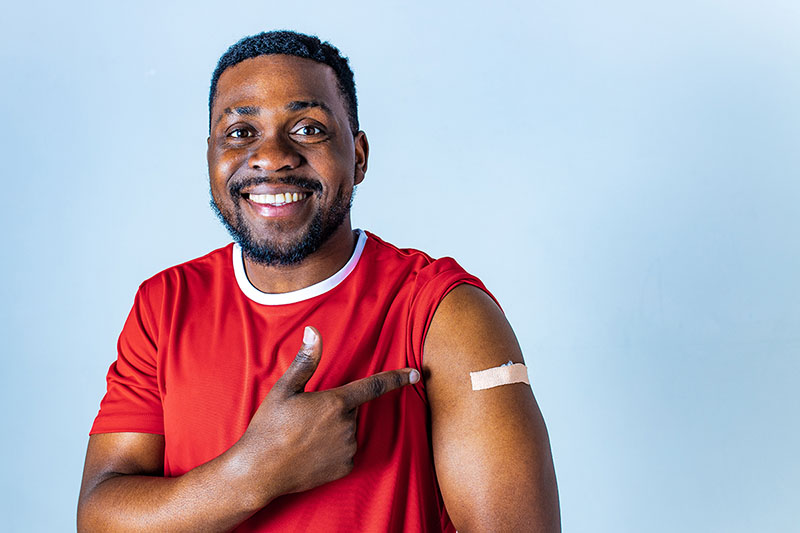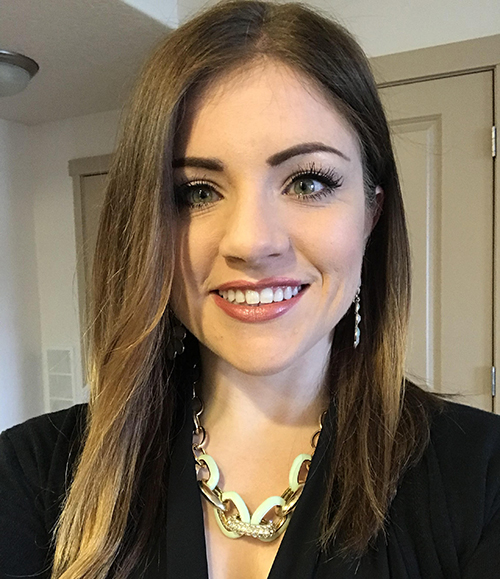Now It’s Your Turn: Get Your COVID-19 Vaccine
Take the first step to protect yourself, your family, friends, and neighbors from the COVID-19 virus.

Over 50% of Americans have received at least one dose of the COVID-19 vaccine and 49.5% of the population are fully vaccinated.
In Utah, 55.8% of people have gotten one dose of the vaccine and 48.6% are fully vaccinated. Idaho recorded 84,308 people have received one dose and 724,235 have received both doses. And finally, only 43.2% of Nevadans are fully vaccinated. These numbers reflect the state’s most recent vaccination status gathered on August 25, 2021.
To learn more about your state’s COVID-19 vaccination status, visit the following sites:
- Utah (https://coronavirus-dashboard.utah.gov/vaccines.html)
- Idaho (https://coronavirus.idaho.gov/)
- Nevada (https://nvhealthresponse.nv.gov/#covid-data-tracker)
COVID-19 cases are on the rise, and it’s forecasted that cases will continue to rise over the next several weeks. How can you help?
Vaccine facts
You may be hesitant about getting the vaccine but learning the facts about the vaccine may ease your worries and help you take the initial step toward vaccination to protect yourself and others from the life-threatening dangers of COVID-19.
- The vaccine is safe. The COVID-19 vaccine has met all safety requirements and rigorous standards that are required by the U.S. Food and Drug Administration (FDA). If fact, the vaccine has undergone the most intense safety monitoring process ever in U.S. history.
- The vaccine is effective. Before a vaccine can be distributed to the public, it must be at least 50% effective. Fortunately, the COVID-19 vaccine has been reported to be 90% effective or more at reducing the risk of COVID-19, including severe illness, for those who receive it. To ensure the vaccine’s effectiveness, it’s important to follow the recommended guidelines, including the dosage amount. Some COVID-19 vaccines require an additional dose within a set timeframe. If you don’t complete the required vaccine dosages or postpone the second dose, you increase your vulnerability to the virus.
- How does a vaccine work? Vaccines help your body build immunity to dangerous viruses and teach it to recognize pathogens that pose a threat to your health. They help your body learn how to fight a virus, so if you were to encounter it, your body will know how to respond. The COVID-19 vaccine works in a similar manner, and it does not contain a live virus. After receiving the shot, the antibodies produced build up and are ready to fight if you contract COVID-19.
- How long does it take for a vaccine to work? After receiving a vaccine, it can take up to a few weeks for your body to build the immunity needed to provide full protection. During this time, you’re still vulnerable to contracting the virus and should take the necessary precautions to protect yourself. The COVID-19 vaccine typically takes two weeks to be effective. According to the Centers for Disease Control and Prevention (CDC), you’re not fully vaccinated until two weeks after the second dose or two weeks after the single-dose vaccine.
- What about the side effects? Side effects are possible reactions that you may experience after receiving a vaccine. Not unlike other vaccines, the COVID-19 vaccine has possible side effects such as pain and redness at the shot site and tiredness, headaches, and muscle pain. However, not everyone experiences side effects. Additionally, it’s important to note that side effects don’t impact the vaccine’s effectiveness and will not give you COVID-19. To learn more about the side effects of the COVID-19 vaccine, visit https://www.cdc.gov/coronavirus/2019-ncov/vaccines/expect/after.html.
- What about a booster shot? At this time, there is not enough information around whether a booster shot will be broadly recommended and offered for the COVID-19 vaccine.
It’s important to get vaccinated, if you are able to do so, to help decrease the number of COVID-19 cases. If you’re still unsure if you should receive the vaccine, talk to your healthcare provider and discuss your concerns.
Related: Intermountain Health COVID-19 Vaccine
Why now?
Transmission rate is high in majority of the states, especially in communities where vaccination levels are low. The time is now to get vaccinated, especially as new variants continue to spread. This new strain has been described as very contagious by the U.S. Centers for Disease Control and Prevention (CDC), because of how quickly it can be passed from person to person and from community to community. Unvaccinated people are now at a higher risk of getting COVID-19 than ever before.
The vaccine helps reduce the spread of the virus. By getting vaccinated, you are doing your part and protecting your family, friends, and neighbors, especially those who are at high risk such as the elderly and immunocompromised.
It’s your turn to get vaccinated. Find a local clinic near you with vaccinefinder.org.
Related: Recognizing COVID-19 Vaccine Scams
